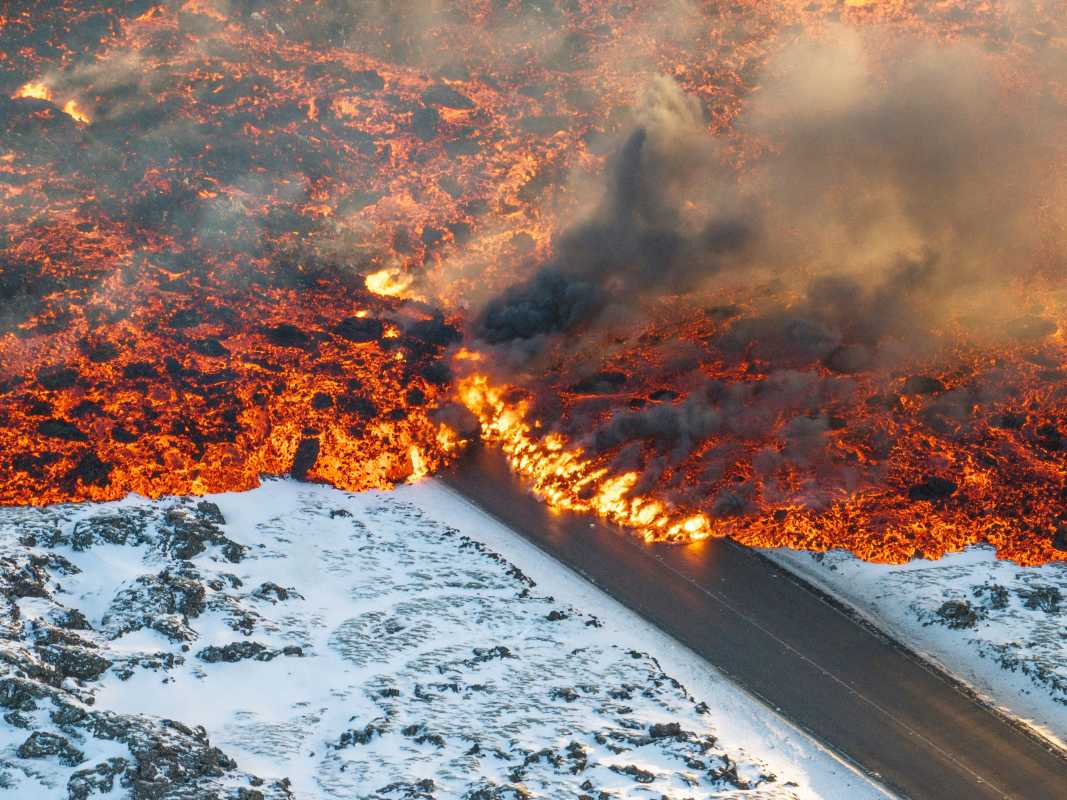News
Volcanic Eruption in Iceland Disrupts Hot Water Supply and Threatens Power Plant

A state of emergency has been declared in Iceland as a volcanic eruption in the Reykjanes Peninsula has caused significant damage to hot water pipes, resulting in disruptions to the hot water supply for thousands of people. It is the third eruption in the area since December, raising concerns about the potential impact on other crucial pipelines near the Svartsengi power station.
The lava flows from the eruption have formed a 3km-long fissure, sending streams of lava high into the air and emitting smoke that can be seen from Reykjavik, the capital city, located approximately 40km away. The popular tourist attraction, the Blue Lagoon, has been forced to close due to the lava flows. The Icelandic Department of Civil Protection and Emergency Management is working to ensure the hot water supply for over 20,000 affected individuals, while schools in the affected areas remain closed.
The disruption caused by the eruption has also impacted the Keflavik Airport, although its services are currently running as usual. Volcanologist Dr. Evgenia Ilyinskaya from Leeds University explains that while the Svartsengi power station is partially protected by barriers, the hot water pipes providing water to an additional 30,000 people in the peninsula are at immediate risk.
The Icelandic Meteorological Office reports a decrease in the strength of the eruption. It is worth noting that the recent eruptions in southern Iceland have involved fissures rather than explosive volcanic activity that releases ash into the atmosphere. Although this eruption is in a similar area as the one in December, it is unlikely to cause more damage to the three homes destroyed in the previous eruption.
Iceland has a total of 33 active volcano systems and is located on the Mid-Atlantic Ridge, which marks the boundary between two large tectonic plates. The Reykjanes Peninsula last experienced volcanic activity 800 years ago, with eruptions lasting for several decades. This marks the sixth eruption in the area since 2021, suggesting that a new volcanic era may be beginning.












